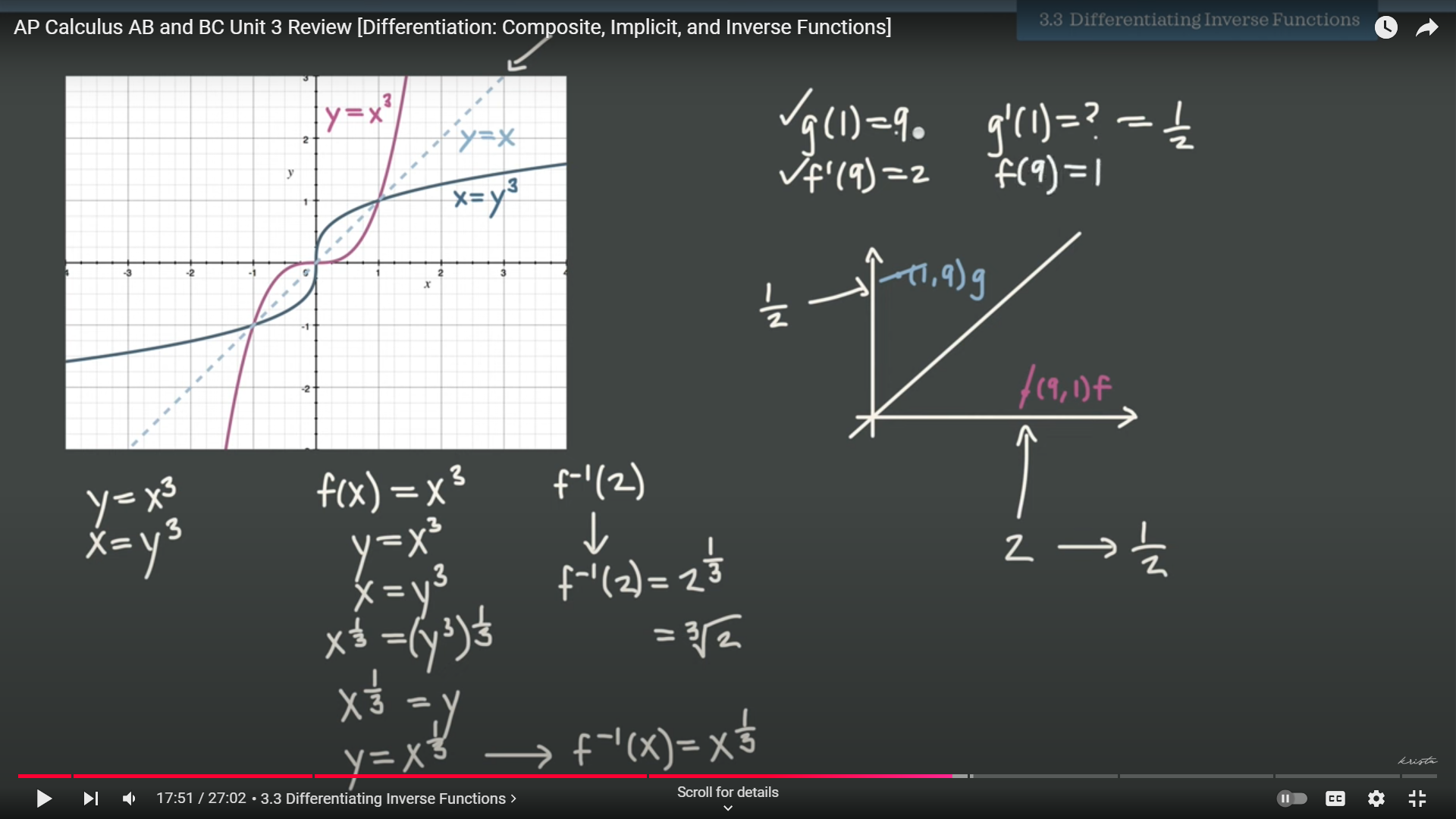Unit 3 AP Calc AB
3.1: Chain Rule
-Composite function- a function inside a function
ex.) 3(x²+2x)²
Chain rule in two steps:
1)Take the derivative of the outside, ignoring the inside
2)Multiply the derivative by what is inside
ex. if differentiating 3(x²+2x)², with the rules of the chain rule, you would get 6(x³+2x)(3x²+2x)
3.2: Implicit Differentiation
x: differentiate like normal
y:differentiate like x
-but after this, we multiply by y’ and use chain room to get it’s derivative.
example problem-3x²-differentiated using the power rule, we get 6x. And if we come acorss 3y² you get 6y. But now you need to multiply gy by 6y’, which will get you the answer 6yy’.
3.3: Differentiating inverse functions
